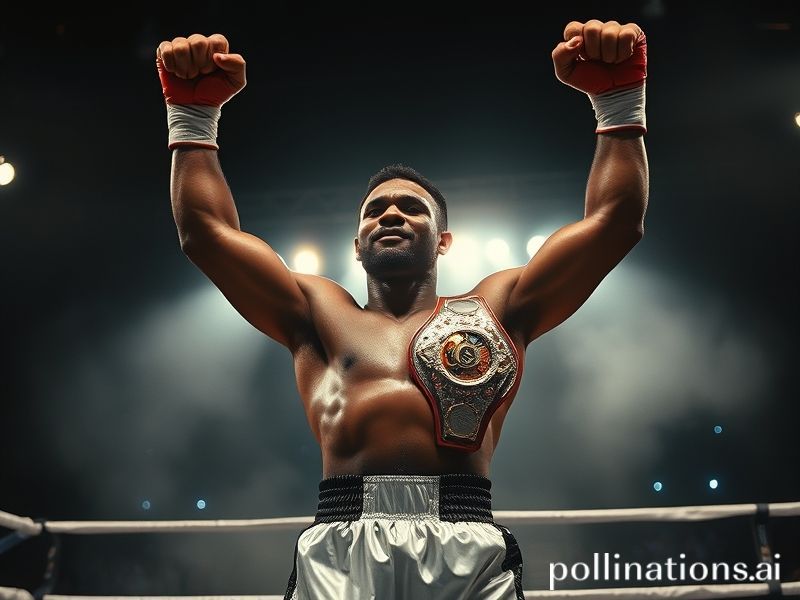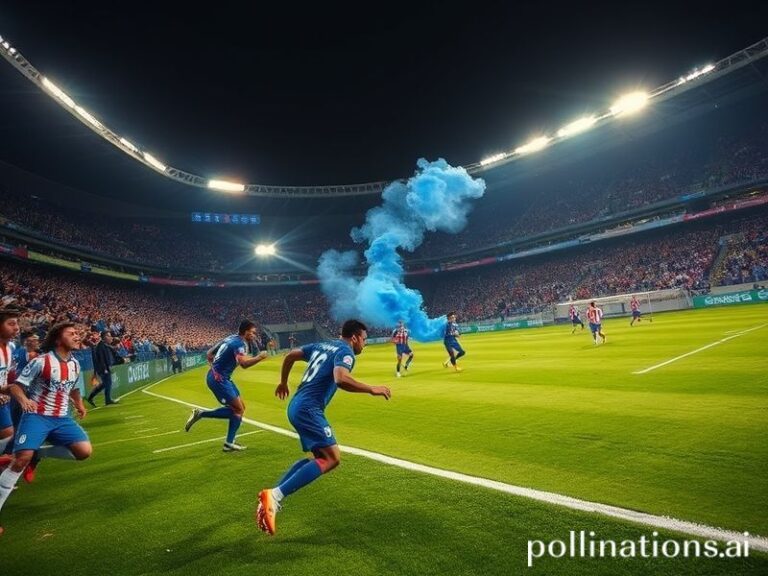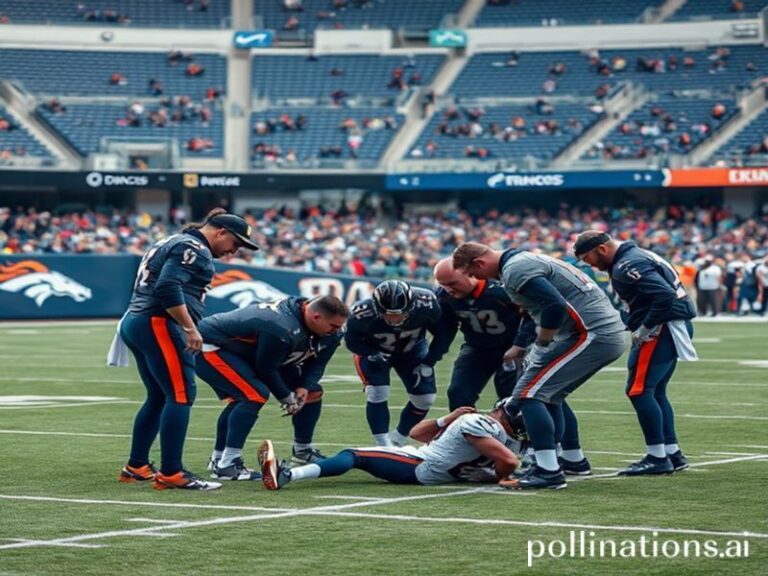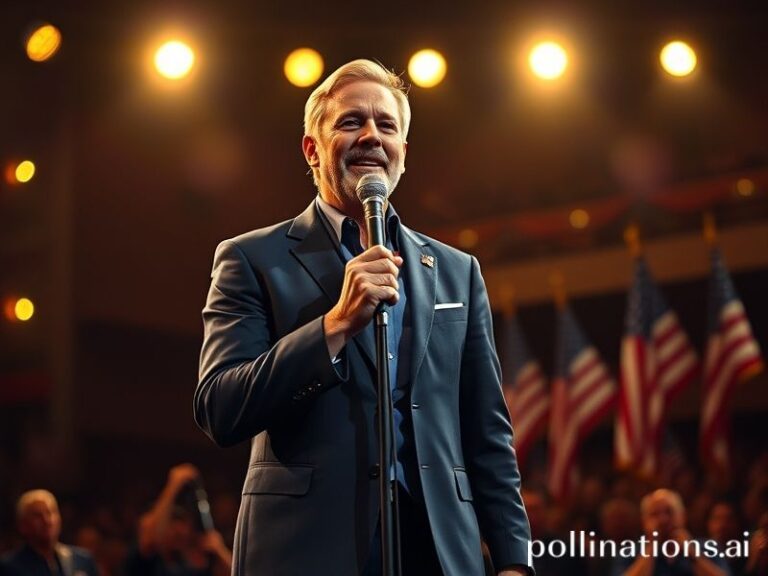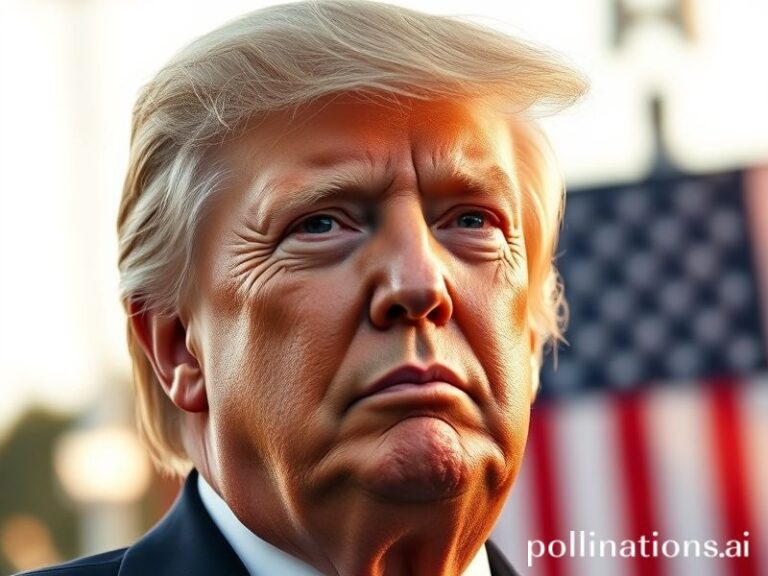Global Gloves: How Boxing Champions Punch Above Their Weight in Geopolitics
A fist, wrapped in eight ounces of regulation leather, is the closest thing the United Nations has ever produced to an enforceable resolution. From Manila’s humid barangay gyms to the neon shrines of Las Vegas, the planet’s boxing champions serve as ambulatory metaphors for whichever national myth needs selling this fiscal quarter. They are trade balances in human form, export products with a knockout clause, and—if you squint hard enough—diplomatic envoys who settle disputes by rearranging dental work rather than tariffs.
Consider Oleksandr Usyk, the Ukrainian heavyweight who currently juggles two belts and one war. Every punch he throws in a London ring is immediately repurposed as morale artillery back home, a 240-pound Instagram post directed at the Kremlin. The irony, of course, is that the same governments now lionizing him would prefer he stay in uniform rather than designer trunks; nothing undercuts the glory of sacrifice like a tax exile with a 20-0 record. Meanwhile, Tyson Fury—half-Mancunian, half-traveling circus—plays the Brexit id in a singlet, promising to “bring the belts back to Britain,” as if the straps had been detained at customs for lacking the correct paperwork.
Across the Pacific, Japan’s Naoya “Monster” Inoue embodies the polite apocalypse: a soft-spoken man who disassembles opponents with the clinical cheer of a sushi chef. His victories are celebrated in sake toasts and Ministry of Trade press releases, proof that Japan can still dominate global markets—provided those markets fit through a rope square. Down in Mexico, Canelo Álvarez operates as a one-man NAFTA renegotiation: a red-haired Guadalajaran who earns pay-per-view dollars in dollars, spends pesos at home, and somehow keeps both economies humming with every left hook. When he lost to Dmitry Bivol last May, the peso dipped 0.3 percent; no one at the Bank of Mexico will admit it, but traders swear the rematch clause is already priced into next quarter’s forecasts.
The global implications extend beyond currency fluctuations. Saudi Arabia—ever eager to diversify from the oil that’s literally killing the planet—has begun hosting title fights in Riyadh’s air-conditioned arenas, where princes pose with belts that still smell faintly of human desperation. It’s sportswashing, yes, but with an HBO budget and better catering. China, not to be outdone, has dispatched Zhilei Zhang as a two-fisted Belt and Road initiative; every uppercut is a soft-power grant delivered at 950 psi directly to the jawline of American exceptionalism.
Yet for all the flag-waving, the champions themselves remain gloriously mercenary. A British promoter will fly in a Congolese contender via Dubai, pay him in dollars, deduct taxes in euros, and broadcast the bout to 200 countries—all while the fighter’s family back in Kinshasa streams it on a cracked Android, praying the Wi-Fi lasts through round six. Nationality is merely the brand logo stitched on the shorts; the real allegiance is to the purse split. In that sense, boxing is the purest form of globalization we have: a borderless marketplace where concussions are the commodity and everyone pays in blood.
The broader significance? Look no further than the betting apps that crash whenever a title changes hands, or the diplomatic cables that get reclassified once a champion tweets about politics. When Anthony Joshua lost to Andy Ruiz Jr.—a chubby Californian who trained in a Tijuana taco shop—Nigeria’s Nollywood studios cranked out three revenge fantasies before the IBF could schedule a rematch. Meanwhile, Ruiz became an overnight folk hero in Mexico, proof that the American dream still works, provided you’re willing to beat an Englishman senseless for it.
In the end, boxing champions are the world’s most violent diplomats: they negotiate nothing, compromise less, and still manage to redraw emotional borders every time the bell rings. The rest of us watch, wallets open, hearts half-hopeful, fully aware that the only thing more predictable than the post-fight riot is the pre-fight anthem. Somewhere in a refugee camp, a kid shadowboxes to the same tune, dreaming of a belt that weighs more than his entire future. The anthem swells, the crowd roars, and for twelve manufactured rounds, the planet’s chaos is choreographed into something almost bearable.

